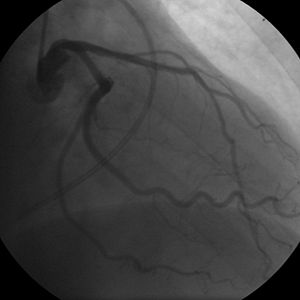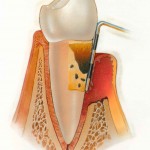The number one cause of mortality in the United States since 1900 continues to be heart disease. And gum disease and heart disease appear to be related, thanks to several extensive studies in the early 2000s which suggested that people with gum disease (periodontal disease) were twice as likely to also have coronary artery disease, along with other heart-related health conditions. Both diseases are complex and share some of the same risk factors including smoking, genetics, increasing age and stress. While these studies have not definitively proven that gum disease causes heart disease, they have clearly shown that there is some correlation between the two. The understanding of this relationship and what to do about it is very important.  Â
Prevalence of periodontal disease
Most people believe that a little bleeding while brushing their teeth is normal. It is such myths and misconceptions that have resulted in more than 80% of the population with gum disease. Symptoms of gum disease are often not noticeable until the disease is advanced. They include red or swollen gums, which may be tender and bleed, painful chewing and loose teeth. The main cause of gum disease is bacterial plaque – a sticky, colourless film that constantly forms on the teeth, but smoking and genetic factors also play a major role.
How is gum disease linked to heart diseases?
During the stages of gum disease, bacteria and toxins from infected gums may access our bloodstream and travel to the heart. One theory is that the oral bacteria enter the blood stream, attaching to fatty plaques in the coronary arteries (heart blood vessels) and contribute to clot formation. Periodontal pathogens have been found in plaques. Coronary artery disease (CAD) is characterized by a thickening of the walls of the coronary arteries due to the buildup of fatty proteins. Blood clots can obstruct normal blood flow, restricting the amount of nutrients and oxygen required for the heart to function properly. This may lead to heart attacks.
Another possibility is the role of inflammation – the body’s response to infection, injury or irritants. While inflammation is a protective response of the body, chronic inflammation can cause a number of diseases and serious health problems. Periodontitis is a chronic infection that not only destroys the gum tissues and bone that support the teeth, but also increases the inflammation level throughout the body. Inflammation is now known to play a critical role in many chronic diseases that are not usually classified as inflammatory diseases, including heart disease.
Periodontal disease can also cause an aggravation of existing heart conditions. A well established link between the gum and heart disease has to do with infective endocarditis (an inflammation of the inner layer of the heart, the endocardium due to infection).
There is a clear connection between bleeding in the mouth that creates an opportunity for bacteria to travel into the bloodstream. Normally this bacteria is eliminated from the blood stream promptly by the white blood cells. Chronic periodontal disease can be a predisposition for the bacteria to cause serious infection by latching on to the damaged heart tissue. It is therefore common practice to make certain that patients with this type of heart condition are medicated with antibiotics before dental procedures that may result in bleeding. Your periodontist and cardiologist will be able to determine if your heart condition requires use of antibiotics prior to dental procedures.
What should I do?
Dental disease impacts on people’s general health and well-being. Periodontal disease is common, preventable, and treatable. It is suggested that improving periodontal health could significantly reduce the risk of cardiovascular disease. Given the high mortality rate of cardiovascular diseases, and the relatively minor morbidity of periodontal therapy, maintenance of periodontal health should be among the recommendations for prevention of heart disease.
The FDA has not approved any treatments. Still there are some facts that you ought to consider:
- Toothbrushing using toothpastes containing triclosan and flossing has been shown to reduce the levels of all of the harmful bacteria in your mouth. In particular a bacteria called Steptococus sanguis is substantially reduced. This is the bacteria which has been shown to induce blood clots and hardening of the arteries in rabbits.
- Regular visits to your dentist are also important as he/she may be the first one to suspect health problems, including heart disease. For example, a sore or painful jaw is one indicator of heart disease. A dentist who finds advanced stages of gum disease in patients who are over 45 and particularly those who smoke, may recommend a cardiovascular check-up, particularly if the patient is male.
- Scaling and Root Planing are the procedures to help restore gum tissue to health.
- Quitting smoking is important in preventing both periodontal disease and heart disease.
- Risk factors for heart disease should be reduced through a healthy diet, regular exercise and control of any conditions that increase risk, such as diabetes, high cholesterol or high blood pressure.
You should consult your dentist or physician for specific treatment advice.




Pingback: How do you know if toothache is caused by sinus infection? | Intelligent Dental
Pingback: How often should you change your toothbrush | Intelligent Dental
If some one desires expert view regarding blogging and site-building after that i suggest him/her to pay a quick visit
this webpage, Keep up the nice work.
It’s actually a great and helpful piece of info. I’m satisfied that you simply shared this useful info with us. Please stay us up to date like this. Thanks for sharing.